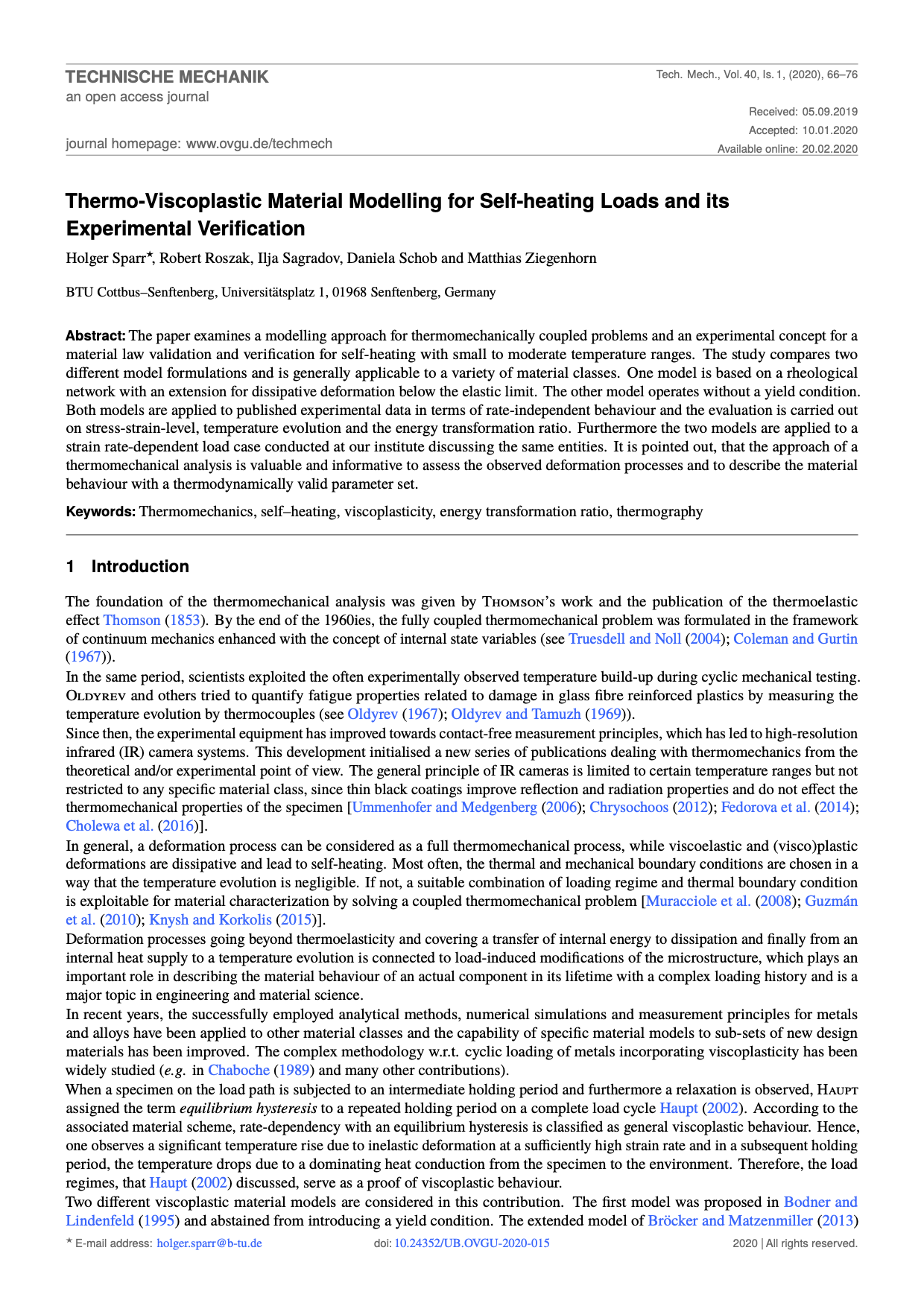Thermo-Viscoplastic Material Modelling for Self-heating Loads and its Experimental Verification
DOI:
https://doi.org/10.24352/UB.OVGU-2020-015Keywords:
Thermomechanics, self–heating, viscoplasticity, energy transformation ratio, thermographyAbstract
The paper examines a modelling approach for thermomechanically coupled problems and an experimental concept for a material law validation and verification for self-heating with small to moderate temperature ranges. The study compares two different model formulations and is generally applicable to a variety of material classes. One model is based on a rheological network with an extension for dissipative deformation below the elastic limit. The other model operates without a yield condition. Both models are applied to published experimental data in terms of rate-independent behaviour and the evaluation is carried out on stress-strain-level, temperature evolution and the energy transformation ratio. Furthermore the two models are applied to a strain rate-dependent load case conducted at our institute discussing the same entities. It is pointed out, that the approach of a thermomechanical analysis is valuable and informative to assess the observed deformation processes and to describe the material behaviour with a thermodynamically valid parameter set.





